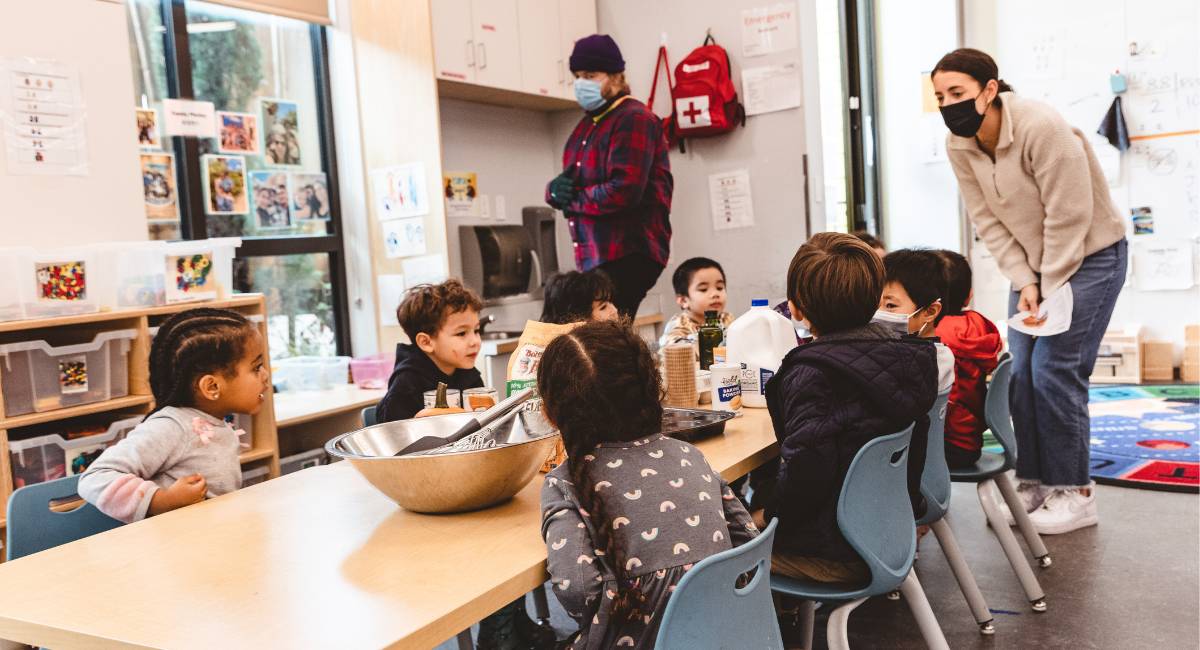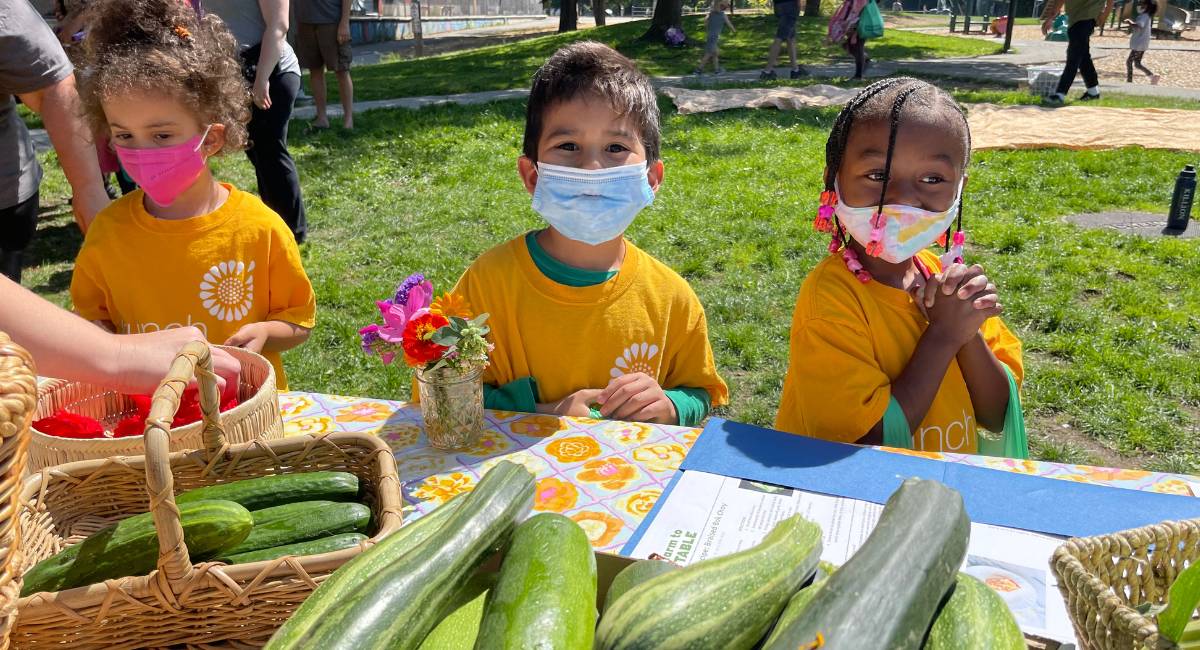
It was pumpkin season in Seattle and a group of preschoolers were learning just how delicious these gourds can be.
In their classrooms late last November, they stood over tables and measured pumpkin into cups of masa-thickened hot chocolate. They used a molinillo, a Mexican wooden whisk, and moved their hands back and forth to stir the pumpkin into the hot chocolate. When they were done, they drank the champurrado, a Mexican drink thickened with local King County produce.
The recipe they used was created by University of Washington Master of Public Health student Karen Krol, who worked with the Seattle Farm to Preschool program for her practicum experience. The program provides Seattle-area preschoolers and their families with weekly bags of fresh produce, locally grown food for preschool meals, and hands-on nutrition education, including culturally diverse and seasonally inspired recipes.
“The Farm to Preschool program is important because when we encourage young children to taste new foods, it inspires curiosity. Even if children don’t like the taste of something now, they may be more willing to try it again in the future,” Krol said. “Encouraging children to have a positive relationship with food could impact short- and long-term health outcomes.”

Krol used to work as a pastry chef in Seattle but soon wanted to contribute to the community in a different way through the lens of nutrition. After starting her MPH in Public Health Nutrition at the UW School of Public Health, Krol was eager to work with the Farm to Preschool program because of its focus on improving food equity amongst young children and their families.
Farm to Preschool is funded by Seattle’s Sweetened Beverage Tax and supports 43 preschools in the city. The program is a community partnership between eight organizations and aims to provide healthy local food and education to young children and families as well as support Washington farms, with a focus on small-scale, BIPOC, immigrant and refugee, LGBTQIA+, and women farmers.
Before and during the pandemic, the program conducted community engagement work to learn how to provide improved experiences for participating preschools, families, and farmers, said Kelly Okumura, the coordinator of Farm to Preschool and Krol’s site supervisor. This work, which was also supported by UW MPH students, found that stakeholders were looking for more holistic education and engagement with the local food system.
“We're all part of the same system,” Okumura said. “We're all contributing to it, and ideally we all benefit from it.”
That helped guide the work Krol was able to do for the practicum: support food education that reflected the multicultural diversity of Seattle’s preschool communities.
Krol was tasked with creating several dozen recipes for the Farm to Preschool program to use with its young students. These recipes would also be sent home with families, alongside local produce, so that children and their parents could make them together. It was important that the recipes be simple, have easy ways for children to participate, and represent the diverse communities of the Seattle region.

To help create these recipes, Krol was connected to local chefs through Farm to Preschool’s partner, Tilth Alliance. These chefs prepare culturally relevant meals for seniors and were able to recommend to Krol how to adapt recipes for young children. They recommended designing recipes for smaller portion sizes and creating foods that kids could dip other foods into. That helped Krol take traditional recipes and adapt them to be child-friendly.
Krol took note of the languages spoken by families in the Farm to Preschool program, and then researched some of the popular and traditional meals served in regions where those languages are primarily spoken. She also consulted seasonality charts to see what ingredients were in season in the Pacific Northwest to make best use of local farm produce, with a focus on late summer and autumn. She aimed to have each recipe include 1-2 seasonal produce items.
The recipes Krol designed cover beverages, entrees, side dishes and desserts, including sweet potato mochi cake, lumpia, and spaghetti squash salad with green onion oil and ginger.
These recipes, as well as tasting samples, were given out at popup markets at the Farm to Preschool program sites. These popup markets are free, and they are designed to give children an experience of attending a farmers market with fresh local produce. Typically at pickup time, preschoolers and their families “shop” the market and select from a bounty of seasonal foods from local farmers, and children “pay” with pretend dollars for the local produce they will take home.
Tilth Alliance, a Seattle-based nonprofit, is one of the Farm to Preschool partners that contributes to nutrition education and family food bags. Tanya Fink, a community nutrition registered dietitian at Tilth Alliance and one of Krol’s site supervisors for her practicum, provides food and nutrition education in preschool classrooms.
Fink works to make the education as seamless as possible for preschool teachers and students. Since the children are so young, Fink teaches cooking lessons in 30 minutes, doing much of the cooking prep work in the kitchen and bringing all the supplies with her to the classrooms, including child-safe cooking equipment. Fink also offers trainings for preschool teachers and staff who want to implement their own food education lessons in the classroom.
In addition to supporting preschools, Farm to Preschool prioritizes purchasing from the local farming community. Family food bags and on-site procurement generate substantial sales for local farms, many in King, Snohomish, and Pierce counties. Farmstand Local Foods, the program’s procurement partner, supported Krol’s project by connecting her with their online marketplace and network of more than 100 Washington state farms.
“By exposing kiddos to fresh local fruits and vegetables they will end up liking things that are healthy and nourishing for their bodies,” said Fink. “It’s also giving kids a chance to connect with local farmers in their community and learn where their food comes from.”
MPH Practicum Symposium
Join us for the 27th annual MPH Practicum Symposium April 9, 2025, 3 – 5 PM in the HUB Ballroom.
Virtual Sessions on April 14 - 17, 2025